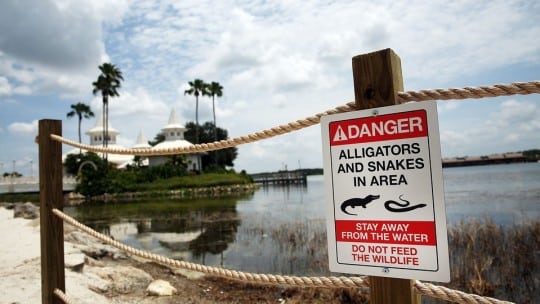
After a 2-year-old boy was killed June 14 by an alligator at Walt Disney World, a brand representing magic seemed to be without pixie dust.
In today’s news cycle, it is impossible for companies, especially those as large and iconic as Disney, to hide from online critics who thrive on call-outs of organizations undergoing a crisis. The use of social media has opened up an unending, multi-channel way of attaining, sharing and manipulating information. For companies like Disney, trying to manage a crisis without further damaging its reputation, this cycle can pose an existential threat.
In the weeks following the attack, Disney continued to suffer from recurring reputation issues, including accusations that firefighters on the grounds had been feeding the alligators, as well as an intern posting a photo of a sign in a Disney employee breakroom dictating the appropriate way to address the attack when speaking with the public. Externally and internally, Disney was exposed and unable to control perceptions.
Here are three ideas crisis managers can use in a similar situation:
1. Hire an Investigator:

In a situation like Disney’s, ongoing, independent investigative research is essential to understand real facts, face hard truths and prepare to address additional problems that could turn a two-day story into a two-month or two-year saga. In times of crisis, internal staff has a tendency to withhold “bad news” from senior leadership who hunker down. To employees afraid to speak out, the facts often are obscured, preventing an accurate situational analysis. This is why it is imperative to have truth tellers: outside, independent investigators. Without fear of reprisal or the instinct to self-preserve, investigators are able to ascertain facts and develop honest analysis; both are needed to address a crisis. Investigators also have the benefit of fresh eyes. They can find discrepancies, identify problems or connect information that others have missed.
2. Be Proactive in Working With Local and Independent Authorities During and After the Crisis:
Disney had a wildlife management system that routinely removed alligators from the premises; however, the process at Disney was expedited past the
Florida Fish and Wildlife Conservation Commission.
In this case, it would have been beneficial to have a relationship before, during and after the crisis with state authorities to solicit their advice on practice improvement. In addition, soliciting input from a third-party conservation group or asking for best practices recommendations is another way to affirm your commitment to safety and demonstrate to the public you are taking action. One issue that organizations often fail to account for in risk assessment is how government will respond to the crisis. Calls from an elected official for hearings on the issue or an off-the-cuff comment at a candidate forum can extend the reach of a crisis. Partnering with local authorities and third-party groups provides a buffering layer of credibility if a reactive politician interjects into the news cycle.
3. Don’t Forget the Digital Crisis Campaign:
In a situation like the one faced by Disney, it is critical to have accurate information streaming to the public and media. Social channels and blogs can be sources of speculation, myth and fabricated stories, which can exacerbate a sensitive situation. This is why a digital strategy is needed. Using paid search you can quickly ensure that the public is being directed to accurate, timely information to answer questions that arise from a crisis. Using a re-targeting strategy, visitors who have sought out your information can then be served ads and additional information addressing the crisis, ultimately beginning the hard work of repairing your brand. While it sounds small, interjecting your story into the search game can change the life cycle of your issue. In today’s digitally sensitive media environment, an increase in searches for a particular topic or question can itself become a news story. This underscores the need to be managing a crisis on digital platforms. Every company needs to have a starting digital crisis management protocol long before a situation arises. This plan should also be updated and practiced routinely based on current events, e.g. crisis plans five years ago did not include Twitter or Facebook. Having a proactive plan in place and practicing it periodically will help the corporation respond to crises in a more productive manner.

“It takes 20 years to build a reputation and five minutes to ruin it.” It is amazing how often major companies forget this important piece of advice from Warren Buffett. By seeking out clear-eyed analysis through an investigator, engaging outside experts and managing your issue in the digital space, a company can produce a complete analysis of why the crisis happened, take steps to address it and how to move forward in the most positive, proactive and transparent way.
CONTACT: [email protected]
